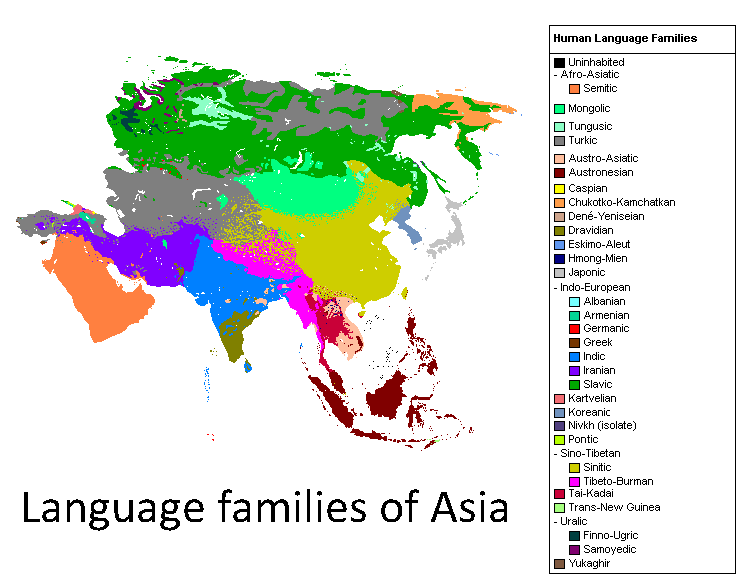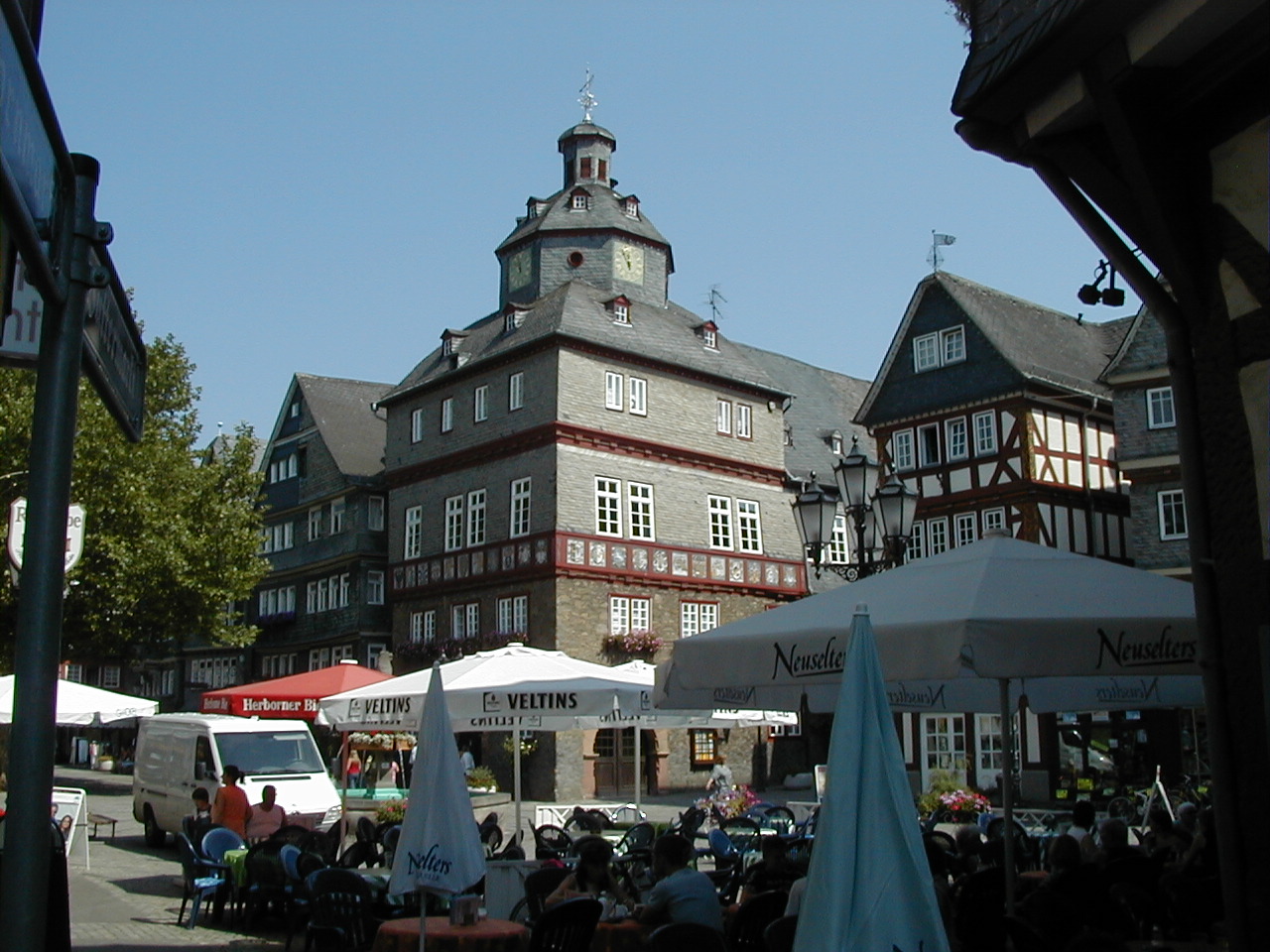|
Jan Jacob Schultens
Jan Jacob Schultens (19 September 1716 in Franeker – 27 November 1788 in Leiden) was a Dutch orientalist. He was the son of philologist Albert Schultens. In 1742 he obtained his doctorate in theology at Leiden Leiden (; in English and archaic Dutch also Leyden) is a city and municipality in the province of South Holland, Netherlands. The municipality of Leiden has a population of 119,713, but the city forms one densely connected agglomeration wit ..., later serving as a professor of Oriental languages at Herborn (1744–1749), and afterwards succeeded to his father's chair at Leiden. His son was the Dutch linguist Henry Albert Schultens. Selected publications * De utilitate dialectorum orientalium ad tuendam integritatem cod. hebr, 1742. * Oratio de fructibus redundantibus ex penitiore linguarum orientalium cognitione, 1749. * Bibliotheca Schultensiana, sive, Catalogus librorum, quos collegit vir clarissimus Johannes Jacobus Schultensius, 1780. * "The Albert and J ... [...More Info...] [...Related Items...] OR: [Wikipedia] [Google] [Baidu] |
Franeker
Franeker (; fry, Frjentsjer) is one of the eleven historical cities of Friesland and capital of the municipality of Waadhoeke. It is located north of the Van Harinxmakanaal and about 20 km west of Leeuwarden. As of 1 January 2014, it had 12,781 inhabitants. The Eise Eisinga Planetarium, established in 1781, is located in the city. History Franeker was founded around 800 as a Carolingian stronghold. The name probably derives from ''Froon-acker'', meaning "land of the lord/king"; the oldest street in the city is still called Froonacker. Beginning around the 11th century, Franeker developed into the administrative center Westergoa. Franeker received city rights in 1374. In the 15th century, Albert, Duke of Saxony established himself in Franeker. The city appeared for a time to be growing into the primary city of Friesland, but was eventually overshadowed in this role by Leeuwarden. During the period of the Dutch Revolt, the town sided early on with William I. From 1585 to ... [...More Info...] [...Related Items...] OR: [Wikipedia] [Google] [Baidu] |
Leiden
Leiden (; in English and archaic Dutch also Leyden) is a city and municipality in the province of South Holland, Netherlands. The municipality of Leiden has a population of 119,713, but the city forms one densely connected agglomeration with its suburbs Oegstgeest, Leiderdorp, Voorschoten and Zoeterwoude with 206,647 inhabitants. The Netherlands Central Bureau of Statistics (CBS) further includes Katwijk in the agglomeration which makes the total population of the Leiden urban agglomeration 270,879, and in the larger Leiden urban area also Teylingen, Noordwijk, and Noordwijkerhout are included with in total 348,868 inhabitants. Leiden is located on the Oude Rijn, at a distance of some from The Hague to its south and some from Amsterdam to its north. The recreational area of the Kaag Lakes (Kagerplassen) lies just to the northeast of Leiden. A university city since 1575, Leiden has been one of Europe's most prominent scientific centres for more than four centuries. Leide ... [...More Info...] [...Related Items...] OR: [Wikipedia] [Google] [Baidu] |
Oriental Studies
Oriental studies is the academic field that studies Near Eastern and Far Eastern societies and cultures, languages, peoples, history and archaeology. In recent years, the subject has often been turned into the newer terms of Middle Eastern studies and Asian studies. Traditional Oriental studies in Europe is today generally focused on the discipline of Islamic studies, and the study of China, especially traditional China, is often called Sinology. The study of East Asia in general, especially in the United States, is often called East Asian studies. The European study of the region formerly known as "the Orient" had primarily religious origins, which have remained an important motivation until recent times. That is partly since the Abrahamic religions in Europe (Christianity, Judaism, and Islam) originated in the Middle East and because of the rise of Islam in the 7th century. Consequently, there was much interest in the origin of those faiths and of Western culture in general. ... [...More Info...] [...Related Items...] OR: [Wikipedia] [Google] [Baidu] |
Philologist
Philology () is the study of language in oral and written historical sources; it is the intersection of textual criticism, literary criticism, history, and linguistics (with especially strong ties to etymology). Philology is also defined as the study of literary texts as well as oral and written records, the establishment of their authenticity and their original form, and the determination of their meaning. A person who pursues this kind of study is known as a philologist. In older usage, especially British, philology is more general, covering comparative and historical linguistics. Classical philology studies classical languages. Classical philology principally originated from the Library of Pergamum and the Library of Alexandria around the fourth century BC, continued by Greeks and Romans throughout the Roman/Byzantine Empire. It was eventually resumed by European scholars of the Renaissance, where it was soon joined by philologies of other European ( Germanic, Celtic), Eura ... [...More Info...] [...Related Items...] OR: [Wikipedia] [Google] [Baidu] |
Albert Schultens
Albert Schultens (; 168626 January 1750) was a Dutch philologist. Biography He was born at Groningen, where he studied for the church. He went on to the University of Leiden, applying himself specially to Hebrew and the cognate tongues. His thesis ''Dissertatio theologico-philologica de utilitate linguae Arabicae in interpretenda sacra lingua'' ("The Use of Arabic in the Interpretation of Scripture") appeared in 1706.Hebrew Bible / Old Testament: The History of Its Interpretation 2: edited by Magne Saebo, Magne Sæbø After a visit to in |
Theology
Theology is the systematic study of the nature of the divine and, more broadly, of religious belief. It is taught as an academic discipline, typically in universities and seminaries. It occupies itself with the unique content of analyzing the supernatural, but also deals with religious epistemology, asks and seeks to answer the question of revelation. Revelation pertains to the acceptance of God, gods, or deities, as not only transcendent or above the natural world, but also willing and able to interact with the natural world and, in particular, to reveal themselves to humankind. While theology has turned into a secular field , religious adherents still consider theology to be a discipline that helps them live and understand concepts such as life and love and that helps them lead lives of obedience to the deities they follow or worship. Theologians use various forms of analysis and argument ( experiential, philosophical, ethnographic, historical, and others) to help understa ... [...More Info...] [...Related Items...] OR: [Wikipedia] [Google] [Baidu] |
Oriental Languages
A wide variety of languages are spoken throughout Asia, comprising different language families and some unrelated isolates. The major language families include Austroasiatic, Austronesian, Caucasian, Dravidian, Indo-European, Afroasiatic, Turkic, Sino-Tibetan and Kra–Dai. Most, but not all, have a long history as a written language. Language groups The major families in terms of numbers are Indo-European and Indo-Aryan languages and Dravidian languages in South Asia and Sino-Tibetan in East Asia. Several other families are regionally dominant. Sino-Tibetan Sino-Tibetan includes Chinese, Tibetan, Burmese, Karen, Boro and numerous languages of the Tibetan Plateau, southern China, Burma, and North east India. Indo-European The Indo-European languages are primarily represented by the Indo-Iranian branch. The family includes both Indic languages (Hindi, Urdu, Bengali, Odia, Assamese, Punjabi, Sindhi, Kashmiri, Marathi, Gujarati, Sinhala and other languages spoken prim ... [...More Info...] [...Related Items...] OR: [Wikipedia] [Google] [Baidu] |
Herborn (Hesse)
Herborn () is a historic town on the Dill in the Lahn-Dill district of Hesse in Germany. Before World War I, it was granted its own title as ''Nassauisches Rothenburg''. The symbol or mascot of this town is a bear. Scenic attractions include its half-timbered houses; Herborn is located on the German Timber-Frame Road. Herborn hosted the 26th ''Hessentag'' state festival in 1986, and the 56th Hessentag in 2016. Geography The town's coordinates are . It has an area of 64 km² (24 mi²), of which 28 km² (11 mi²) is forest. Herborn is connected by the A45 motorway ( E40/ E41) with Siegen, Wetzlar, and Gießen. Neighbouring communities Herborn is bordered on the north by the town of Dillenburg, on the northeast by the community of Siegbach, on the east by the community of Mittenaar, on the southeast by the community of Sinn, on the south by the community of Greifenstein, and on the west by the communities of Driedorf and Breitscheid (all in the Lahn-Dill-Kreis) ... [...More Info...] [...Related Items...] OR: [Wikipedia] [Google] [Baidu] |
Henry Albert Schultens
Hendrik Albert Schultens (25 February 1749 – 12 August 1793) was a third generation Dutch linguist. Life Shultens was born in Herborn. He was the son of Jan Jacob Schultens, orientalist and professor at Leiden University and Suzanna Amalia Schramm, and was the grandson of Albert Schultens. Schultens studied orientalism in Leiden. He traveled to England and studied at Wadham College, Oxford, where he became Magister Artium, honoris causa, in 1773. He became professor in Eastern languages, first in Amsterdam, and then in Leiden. He married Catharina Elisabeth de Sitter. Schultens published a translation (to Latin) and edition of Persian scholar Al-Zamakhshari, "Anthologia sententiarum Arabicarum: Cum scholiis Zamachsjarii" (1772). He was also the author of an edition of ancient Eastern fables, "Pars versionis arabicae libri Colailah wa Dimnah, sive Fabularum Bidpai philosophi Indi" (1786). [...More Info...] [...Related Items...] OR: [Wikipedia] [Google] [Baidu] |
1716 Births
Events January–March * January 16 – The application of the Nueva Planta decrees to Catalonia make it subject to the laws of the Crown of Castile, and abolishes the Principality of Catalonia as a political entity, concluding the unification of Spain under Philip V. * January 27 – The Tugaloo massacre changes the course of the Yamasee War, allying the Cherokee nation with the British province of South Carolina against the Creek Indian nation. * January 28 – The town of Crieff, Scotland, is burned to the ground by Jacobites returning from the Battle of Sheriffmuir. * February 3 – The 1716 Algiers earthquake sequence began with an 7.0 mainshock that caused severe damage and killed 20,000 in Algeria. * February 10 – James Edward Stuart flees from Scotland to France with a handful of supporters, following the failure of the Jacobite rising of 1715. * February 24 – Jacobite leaders James Radclyffe, 3rd Earl of Derwentwater and W ... [...More Info...] [...Related Items...] OR: [Wikipedia] [Google] [Baidu] |
1788 Deaths
Events January–March * January 1 – The first edition of ''The Times'', previously ''The Daily Universal Register'', is published in London. * January 2 Events Pre-1600 * 69 – The Roman legions in Germania Superior refuse to swear loyalty to Galba. They rebel and proclaim Vitellius as emperor. * 366 – The Alemanni cross the frozen Rhine in large numbers, invading the Roman Empi ... – Georgia (U.S. state), Georgia ratifies the United States Constitution, and becomes the fourth U.S. state under the new government. * January 9 – Connecticut ratifies the United States Constitution, and becomes the fifth U.S. state. * January 18 – The leading ship (armed tender HMS Supply (1759), HMS ''Supply'') in Captain Arthur Phillip's First Fleet arrives at Botany Bay, to colonise Australia. * January 22 – the Continental Congress, Congress of the Confederation, effectively a caretaker government until the United States Constitution can be ratified by at ... [...More Info...] [...Related Items...] OR: [Wikipedia] [Google] [Baidu] |









